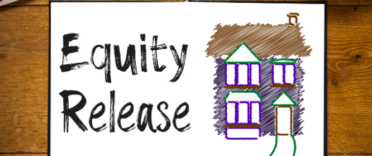That is according to research carried out by the National Housing Federation (NHF).
The Daily Telegraph reported on Tuesday that the NHF believe ‘home buyers paid on average £216,800 for a property in 2007. But they will have to wait until 2014 for a recovery, when average prices will reach £226,900’.
You can read the full alarmist article here.
But what do I make of this story and should you be having sleepless nights about it? The answer is no, especially if you don’t plan on moving/selling anytime soon.
Negative Equity is when your house is worth less than the mortgage secured on it. So it is just a notional value and doesn’t exist in reality unless you try to sell your house. Obviously if you are in negative equity and you want to ‘sell up’ then the sale proceeds from your current house won’t be enough to repay your mortgage, let alone give you anything to put towards your next home. In this instance the bank would want the balance of the money you owe. So unless you have a lot of money in the bank then you’re not realistically going to be moving anywhere.
As long as you can afford your monthly mortgage payments then you can afford to wait for the value of your property to rise. In this instance negative equity does nothing more than limit your options. As I’ve said you almost certainly won’t be able to move home nor get a better mortgage deal than the current one you’re on. For example, if you are on a decent fixed rate deal, once the fixed period is over you will likely default to your lender’s Standard Variable Rate (SVR). SVR’s basically move in line with the Bank of England base rate plus a premium which is determined by your lender. That means you are then at the whim of not only interest rate movements but your lender’s discretion. Obviously this is not ideal.
But, while those who bought in 2007 may be in negative equity a lot of them are now enjoying lower mortgage payments as a result of generous small print in their original mortgage agreements. For example Nationwide customers who’s fixed rate deals, taken out in 2007, have come to an end now enjoy paying a mortgage rate of just 2.5% as opposed to 5%+. This is because their mortgage agreements state that the SVR can not be more than 2% above the Bank of England base rate (currently 0.5%). So their mortgage is costing them less.
So clouds do have a silver lining. But obviously if and when interest rates go up again then their smug smiles will start to wane. That’s why it’s important that they don’t just blow the monthly mortgage savings and instead over pay their mortgage or save for the possibility that rates may go through the roof.
I’ll shortly publish an article about Negative Equity and what you can do about it. But until then don’t have nightmares. And before you say, ‘it’s ok for him!’……guess when I bought my house.
Yes that’s right………….2007.






